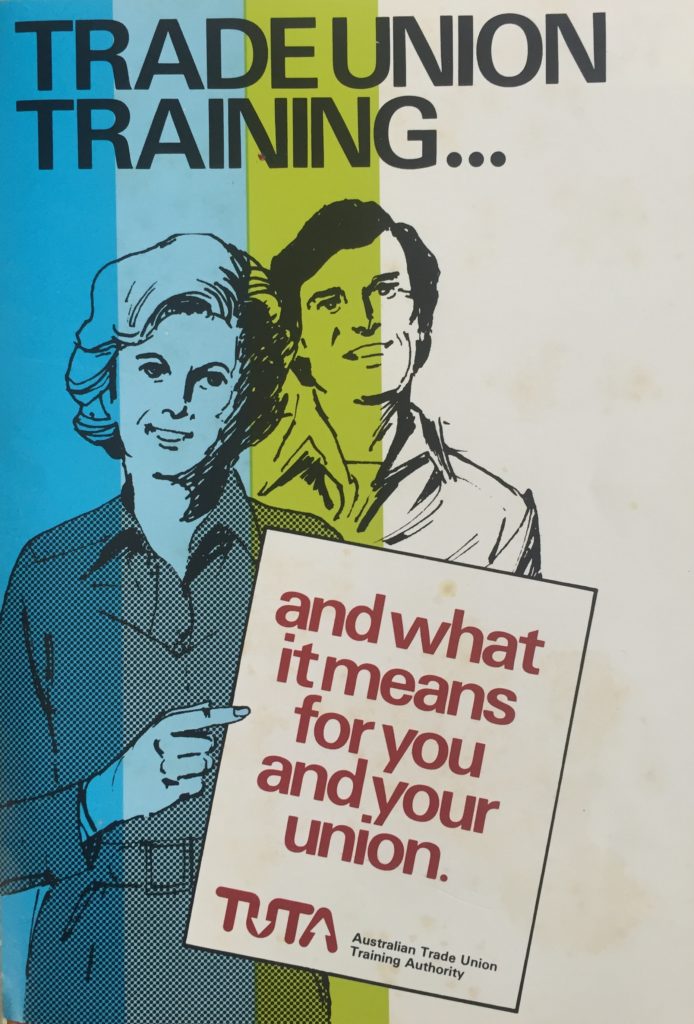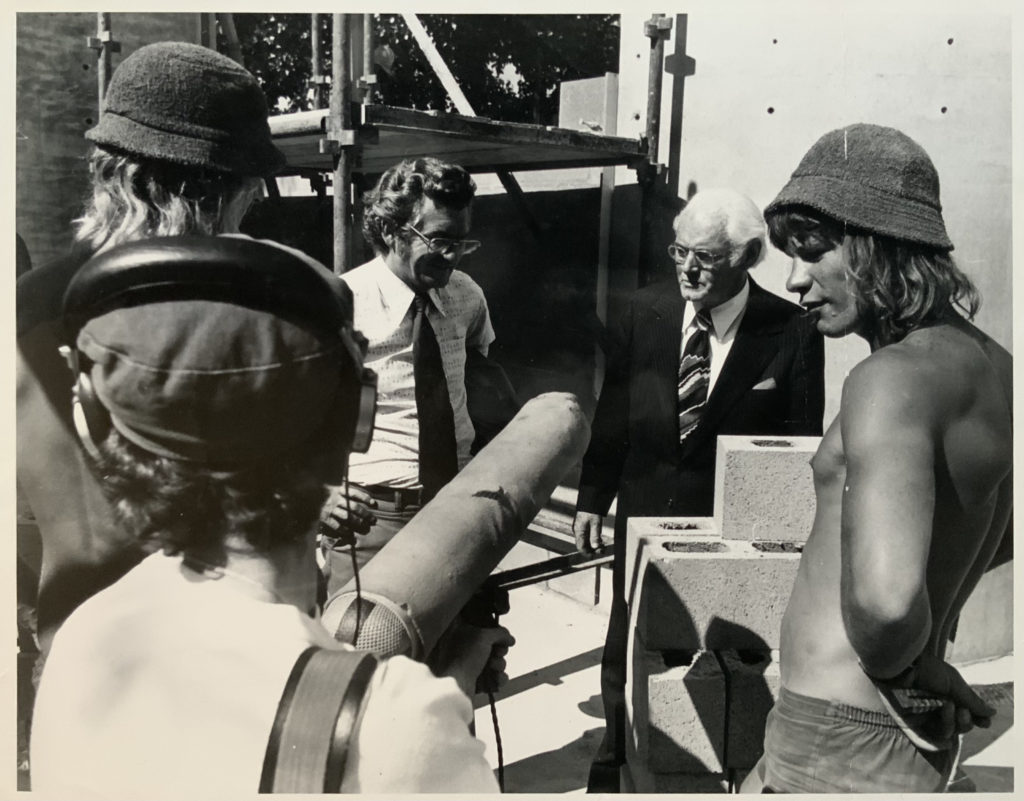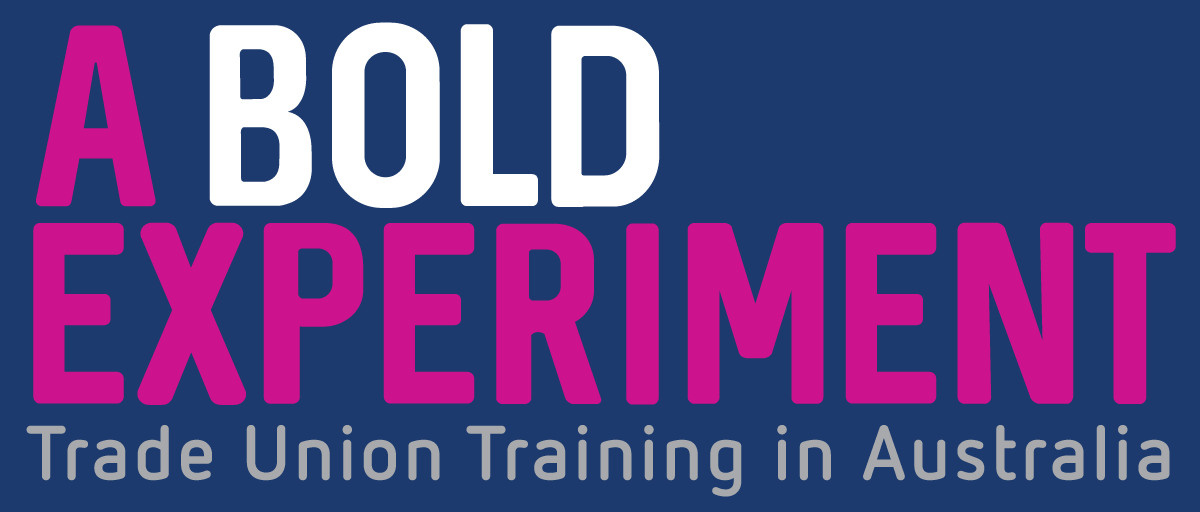The Trade Union Training Authority: Lessons from a bold experiment
About our project

Source: Papers of Des Hanlon.
We are an interdisciplinary research team investigating the effectiveness of trade union training in developing the capacity of the Australian workforce.
The primary focus of this project, the Australian Trade Union Training Authority (or “TUTA”), was a world first: a fully government-funded training body which operated between 1975 and 1996. Established as a Commonwealth statutory authority, TUTA was designed to provide targeted training to job representatives and union officials, to make unions more effective as industry partners during a period of economic, industrial and social reform.
TUTA had bipartisan support for most of its existence. It was initiated by Clyde Cameron, minister for industrial relations in the Whitlam government, whose championing of what he called a ‘bold experiment’ was reflected in the name of the Authority’s national training college. TUTA continued to find support under the Fraser, Hawke and Keating governments, but was closed down by the Howard government as part of its first wave of industrial relations reforms in 1996.
What we are investigating
We seek to understand the effectiveness of trade union training and the implications for contemporary challenges, through examining:
- The origins of this form of union training, who initiated it and how it garnered support;
- The broad remit of TUTA to provide both training and education; and
- The relationship between trade unions and the state, and the effects of legal and regulatory frameworks.
What TUTA did
Using participatory adult education methods, TUTA ran courses in training centres across all Australian states and territories, established a substantial remote and regional outreach program and operated the purpose-built Clyde Cameron College in Wodonga, which offered advanced residential courses. TUTA developed innovative courses for international unionists, for women in unions and for migrant workers, from its earliest days, and created pioneering training materials, notably in Occupational Health and Safety, industrial democracy and much more. Between 1976 and 1990, TUTA trained 257,770 unionists, running 11,311 courses across the nation.

Why look at TUTA now?
TUTA’s design, development, educational practices and impacts can throw light on the roots and evolution of industrial, education and training systems in Australia. With an eye to the contemporary and future place of trade unions, including the present-day work of the Australian Trade Union Institute, this project informs our responses to the challenges of workforce development and union strategy in an increasingly uncertain and deregulated labour market.
Our project draws on an in-depth examination of TUTA to identify the innovations in union education and the wider institutional setting that will assist unions in rebuilding the collective strength of Australian workers.
Planned project outcomes
The key findings of the project will be presented:
- At an online conference on 16-17 November 2021 – see our Conference page for information.
- On this project website including regular Blog posts on new developments (see below!) and our interactive Timeline
- In publications exploring lessons from the TUTA experience, with relevance to contemporary trade union education and training initiatives
- In short audio documentary form (podcast episodes) drawing on the many voices of TUTA – these will be shared on our Voices page
- At academic conferences in a range of disciplinary contexts including education, labour law, industrial relations, Australian studies, labour history and oral history – see Research Spotlight
Blog posts… stay up with our research progress
- June 21, 2024
- July 3, 2023
- April 28, 2023
- May 17, 2022
- March 3, 2022
